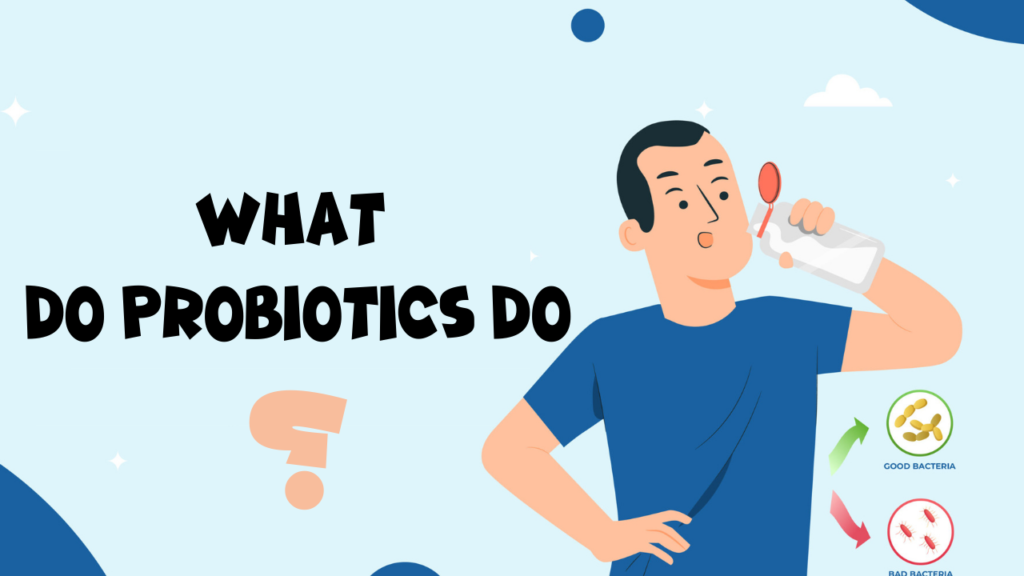The Best Fluffy Pancakes recipe you will fall in love with. Full of tips and tricks to help you make the best pancakes.
Introduction
In recent years, probiotics have become a hot topic due to their numerous health benefits. But what exactly are probiotics? How do they affect our health? This article will explore the role of probiotics in the body and the various health benefits they offer.
What Are Probiotics?
Probiotics are live microorganisms, typically beneficial bacteria or yeasts, that help maintain a healthy balance of bacteria in your gut. While bacteria are often associated with disease, there are also beneficial bacteria essential to human health.
Probiotics are naturally found in some foods like yogurt, kefir, and certain cheeses, but they can also be consumed in supplement form.

How Do Probiotics Work in the Body?
Probiotics promote digestive health by improving the balance of gut bacteria. These beneficial bacteria work by:
- Aiding digestion: Probiotics help break down food in the intestines, making it easier for the body to absorb nutrients.
- Fighting harmful bacteria: Probiotics help maintain the balance between good and bad bacteria in the digestive system, reducing the likelihood of infection.
- Boosting the immune system: Probiotics support the immune system by strengthening the gut barrier and preventing harmful bacteria from spreading to other parts of the body.
Health Benefits of Probiotics
1. Improving Digestive Health
One of the primary benefits of probiotics is enhancing digestive health. Many people experience digestive problems such as bloating, constipation, and diarrhea. Probiotics can help alleviate these issues by promoting the natural balance of gut bacteria.
2. Supporting the Immune System
Probiotics play a crucial role in strengthening the immune system. They enhance the body’s ability to fight off infections and improve the gut’s immune barrier. Some studies have shown that certain types of probiotics can reduce the likelihood of catching common illnesses like colds and the flu.
3. Improving Gut and Colon Health
The gut is home to the largest colony of beneficial bacteria in the body, and these bacteria play a vital role in maintaining colon health. Research suggests that consuming probiotics may lower the risk of developing digestive conditions such as irritable bowel syndrome (IBS) and inflammatory bowel disease (IBD).
4. Supporting Mental Health
Probiotics may also impact mental health. Research shows a connection between gut health and mental health, known as the “gut-brain axis.” Some studies suggest that probiotics can help reduce symptoms of anxiety and depression, leading to overall improved mood.
5. Enhancing Skin Health
In addition to digestive benefits, studies suggest that probiotics may be beneficial for skin health. Probiotics may help reduce skin issues such as acne, eczema, and rosacea by reducing inflammation and promoting healthy bacteria on the skin.
6. Weight Management
Recent research indicates that probiotics may contribute to weight management. Some types of probiotics may help reduce body fat and improve digestion, aiding in effective weight control.
7. Improving Heart Health
Probiotics can also have positive effects on heart health. Research has shown that certain types of probiotics may help lower harmful cholesterol (LDL) levels and blood pressure, reducing the risk of heart disease.
Sources of Probiotics
Probiotics are naturally found in various foods, including:
- Yogurt: One of the most common sources of probiotics.
- Kimchi: A Korean dish made of fermented vegetables.
- Kefir: A fermented milk drink that contains a variety of probiotics.
- Pickles: Some types of fermented pickles, such as sauerkraut, contain probiotics.
In addition to food, probiotics are available in supplement form, containing different strains of beneficial bacteria.
Risks and Considerations
While probiotics offer numerous benefits, there are some considerations to keep in mind. Probiotics may not be suitable for everyone, especially those with certain medical conditions or weakened immune systems. It’s essential to consult with a healthcare professional before starting probiotic supplements.
Conclusion
Probiotics offer a wide range of health benefits, from improving digestive health to boosting the immune system and enhancing skin and heart health. Whether consumed through natural foods or supplements, probiotics can be a great addition to a healthy lifestyle. However, it’s always best to consult with a healthcare provider before using probiotic supplements to ensure they are right for you.


